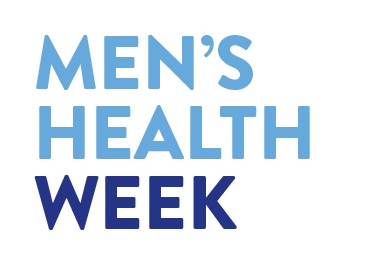We all know why men’s health is worse than women’s: men don’t like going to the doctor, right?
Wrong. As soon as men retire, they go to the doctor just as much as women do. The big gap is in working age or when men are students or young people.
| Full-time | Part-time | Full-time student | Unemployed | Retired | |
|---|---|---|---|---|---|
| Source: GP Patient Survey - July 2016 | |||||
| Men | 37% | 46% | 33% | 52% | 59% |
| Women | 53% | 57% | 51% | 66% | 58% |
As researchers have pointed out, a big chunk of this is because men are less likely to be going to the doctor for reproductive reasons. For obvious reasons, men also don’t get invited in for breast cancer and cervical cancer screening. And men are also less likely to be responsible for the family’s health and less likely to be taking children to the doctor.
A key factor is that men are 75% more likely to work full-time than women and - in too many cases - prioritise their work over their health. And, despite the long-term consequences, there can be hard practical short-term reasons for this - with men are concerned that their employer being aware of any health problems will hit their income and employability. For mental health, for example, there’s some evidence that men’s incomes are hit much harder than women’s if their employers know they have a problem.
In recent research that we ran looking at what will make men take time off work, it’s also clear that men are more likely to take time off work for some problems than others – although, even more worryingly, there's a small group of men who say they won’t take time off work no matter what’s happening to them. A particular concern is that the symptoms most associated with mental well-being are seen as amongst the least important reasons for taking time off work.
| Condition | % |
|---|---|
| Q. Imagine that you were experiencing the symptoms outlined below. For which of these would you take time off work to seek medical help…? Please select all that apply. (n=774; men in full-time work) | |
| Blood in urine | 68% |
| Blood in stool | 59% |
| An unexpected lump | 58% |
| Chest pain or tightness | 55% |
| Coughing up yellow or green phlegm (thick mucus), or coughing up blood | 53% |
| Breathlessness or rapid and shallow breathing | 43% |
| A rapid heartbeat | 39% |
| Feeling confused and disoriented | 39% |
| Dizziness/ nausea | 35% |
| A high temperature (fever) | 28% |
| Back pain | 28% |
| A persistent cough | 26% |
| Anxiety | 18% |
| Feeling low or down | 15% |
| Minor consistent headache | 14% |
| I would not seek medical help for any of the above medical conditions | 8% |
This is all one reason why we strongly support recent NHS initiatives to make GPs in England available for longer hours (originally the Prime Minister’s Challenge Fund, now it’s called the GP Access Fund). We’re also big fans of the drive towards online booking – since that seems to improve things for men (and women) who use it as well. And we’d also like to see other services more easily available out of hours, such as mental health services, physio services and NHS Health Checks.
Can you help us?
- Are you a health professional that’s made extended hours work and reached out successfully to see working age men with serious problems sooner?
- Are you a man whose doctor (or physio or any other health practitioner) has done a great job in making their services easier for you to access?
We want to pull together the best case studies to help the NHS improve their services in ways that are cost effective and have the biggest impact on men’s health.
Please fill out the form below – or send us an email at removingbarriers@menshealthforum.org.uk - and let us know. And if you’d like to be kept up to date with our research, please leave your details.

